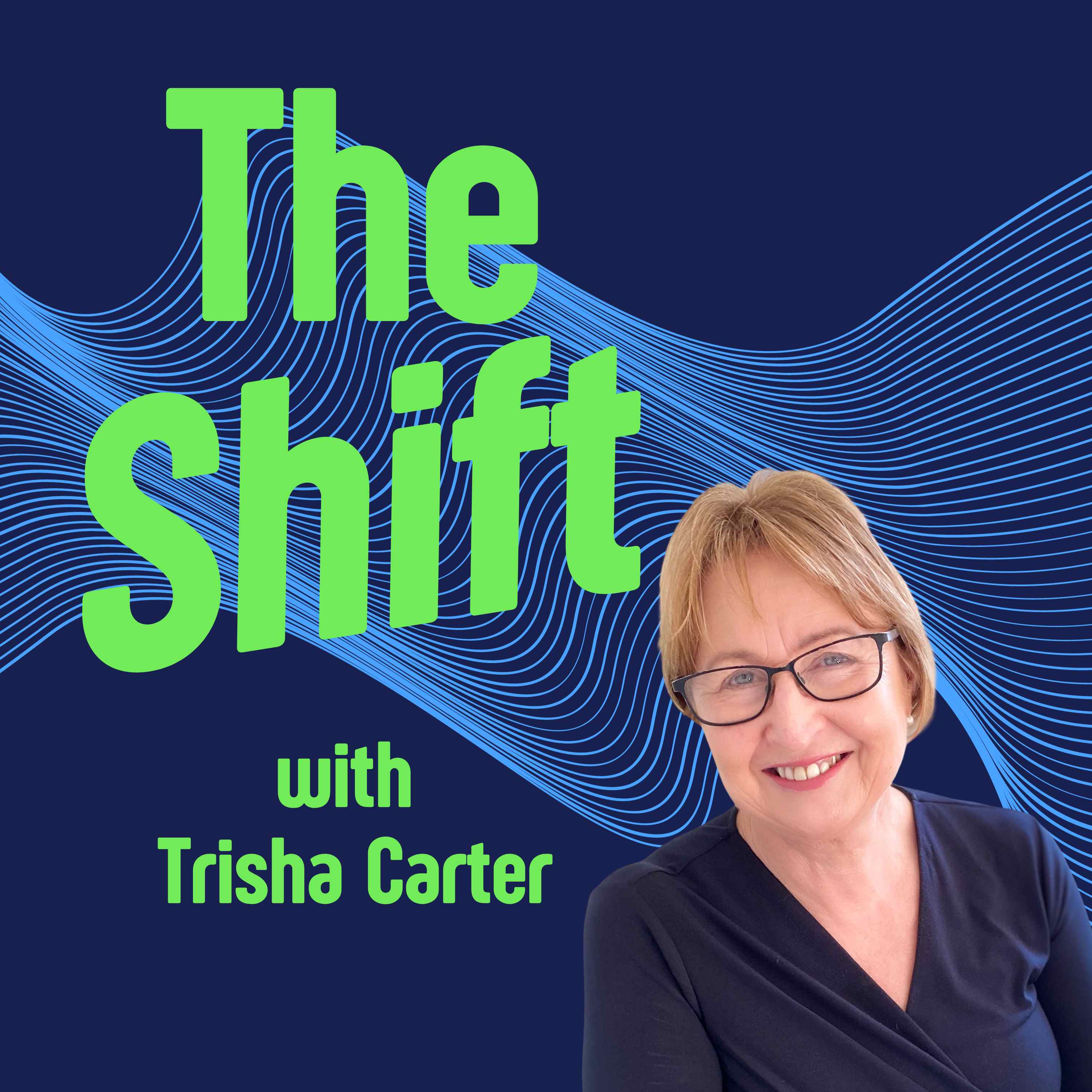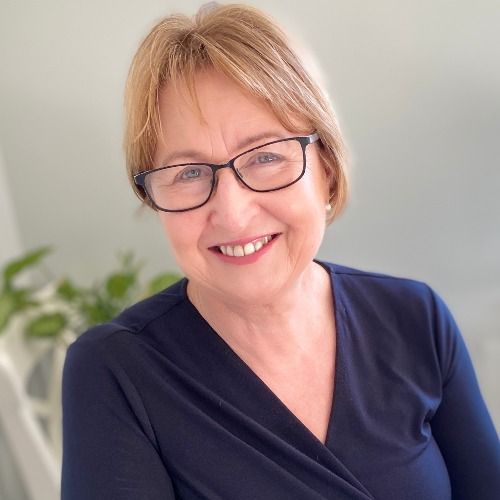Episode 7
What We've Learned So Far - Part Two
In this episode, Trisha is practising what each of her guests has suggested in different ways. She reflects on the learning so far, drawing threads from David Livermore's Episode 4 CQ Strategy Where Shifts Happen and taking those threads through Mariette Rups-Donnelley's Episode 5 An Actor's Perspective and then again seeing those threads show up in Cath's Episode 6 Can the Body Help us Shift?
Despite real differences in their approaches, there are also similar lessons we can learn from these episodes in how to increase our CQ Strategy - our Cultural Awareness. If you have noticed repeated themes we'd love to hear your thoughts. Please reach out on LinkedIn to discuss this further. You can follow or connect with Trisha here
Transcript
I would like to acknowledge the Tharawal people, the Aboriginal people of Australia, whose country I live and work on. I would like to pay my respects to their elders, past, present, and emerging and thank them for sharing their cultural knowledge and awareness with us.
Trisha:Hello, everyone. I'm Trisha Carter, an organisational psychologist, and an explorer of cultural intelligence. I'm on a quest to discover what enables us to see things from different perspectives, especially different cultural perspectives, and why sometimes it's easier than others to experience those moments of awareness. What can we do to help ourselves and others to experience these shifts when needed?
Trisha:I've been speaking to a range of experts. If you've been following along, you’ll know that I've interviewed some people from very different work and backgrounds in the past few episodes. One of the leading experts in cultural intelligence, a very experienced actor and a coach of actors and an LGBT plus coach and consultant who is also a shamanic practitioner.
Trisha:Today I'm practicing what we have been discussing in each of the episodes. I'm going to spend some time reflecting on some of the key themes that were woven through the different episodes and expertise areas. So this is. What have we learned so far? BLOCK two Or maybe it should be. What have we learned lately? You may have listened to the first time I stopped to reflect and discovered what we had learned so far.
Trisha:Well, here's the interesting thing. Some of those themes continue. Point number one shifts are not moments of joy. They are mostly moments of discomfort. Sometimes they may begin with denial. Like in episode four with David or with Cath in episode six. Or there might be moments when we realize that we don't fit in. Like in episode five with Mariette.
Trisha:The key learning for us is that each of them worked through that discomfort to grow and to reach that point maybe of joy, or at least satisfaction in what had been gained. New understanding and better ways of operating with others. Point two. There are often people who can help us in those moments of learning. In episode four, Dave spoke of his wife as a supportive and challenging confidant alongside cultural interpreters who also helped him see from a different cultural perspective, as Kath did with her learning about Indigenous culture.
Trisha:We had numerous examples of people coaching others to help them see and operate differently, with both Cath, Mariette and David acting as coaches for others. I think the key learning here is don't try and go it alone when you're trying to operate well in a situation of diversity. You'll learn more from being open to others. Seek out those people who can help you as you want to increase your cultural awareness.
Trisha:And there may be more than one person who will help you with the need to navigate. As Cath described it. Point number three - the power of asking why. Dave spoke about this is using the five Why technique that Toyota made famous in its quality improvement process. We can bring this to cultural intelligence by asking ourselves, Why am I feeling this way?
Trisha:If we're feeling uncertain or uncomfortable or judgmental, and then asking it again and again and again, why that and why again up to five times. This will help us uncover values or ways of thinking that may be influencing us deeply. Or perhaps it will help us uncover pain that we may have felt sometimes through not fitting in. It will help us to deepen our understanding of who we are and how we are showing up.
Trisha:Mariette spoke about actors asking why about the characters they were playing, trying to understand them in their ways of being. We can bring that why to others that we may not yet understand. As Cath suggested with her examples of asking people why they thought things after she had been challenged by them in what could have been a threatening situation.
Trisha:So the learning point is to ask ourselves why about us and about others, and sometimes to ask others why as well. Point Four - this building Our CQ Strategy. Our cultural awareness is active work. That was David's wisdom in episode four. It's not something that just happens. Mariette spoke of the need to prepare well for a new role before going on stage and acting it.
Trisha:David gave some examples of work we can do with perspective taking. That's when we make an effort to think about other people, perhaps the ones we find harder to understand or relate to and practice describing them in the first person. So instead of observing them and saying, Oh, he is always she does that actually stepping into their shoes and saying, I believe, I feel and in this way we understand them better.
Trisha:This is a technique that you can use in a training session if you're working with others or you can help somebody if you're coaching them as well. Cath also gave examples of work that we can do and reflecting deeply with the questions she suggested asking ourselves about why we're feeling things. So the learning point here is awareness is active.
Trisha:We need to switch on and do the work. Some other points that stood out to me. Learning about our bodies, reactions and what our bodies are telling us. Was a great reminder for those of us who might operate from a more thinking perspective. Cath’s ability to relate to the physical, to the emotional helped us to see how we can open doors of awareness through that channel.
Trisha:Mariette’s story about being on stage and then making a quick costume change in the wings. But it wasn't her who changed herself. There were others who were doing that for her. Someone who changed her clothes, someone who changed her wig and someone who fixed her makeup while she concentrated on what was coming next and what she would be facing when she stepped back out on stage.
Trisha:Life doesn't always give us that luxury, but it did make me think of people I've worked with who have relocated and how great relocation consultants helped them take care of so many of the ‘life’ things so that they can focus on who they need to be and what they need to learn as they step into the new culture.
Trisha:One of the other factors that came up in different ways with different guests over the last few episodes was about working with intuition, both the positives of it and the risks. I think this is a topic I'm going to need to revisit at some point to go more deeply into it. If you have some thoughts on this, I'd love to hear them.
Trisha:And at some point I also need to talk about journaling. You'll have heard that mentioned over a few episodes too, more to unpack there. Thank you for joining me in this reflection process. I hope you feel like you are learning how to build your cultural awareness and consequently that means your cultural intelligence. Next week we're going to dive into our understanding of the brain and see what our brain is actually doing while we're working to build our awareness.
Trisha:I'd love it if you'd connect or follow me on LinkedIn. I'm keen to hear your questions and thoughts. You can subscribe or follow on your podcast app so that you'll be notified when new episodes are released. So thank you for listening and please join us for further episodes of the shift.

